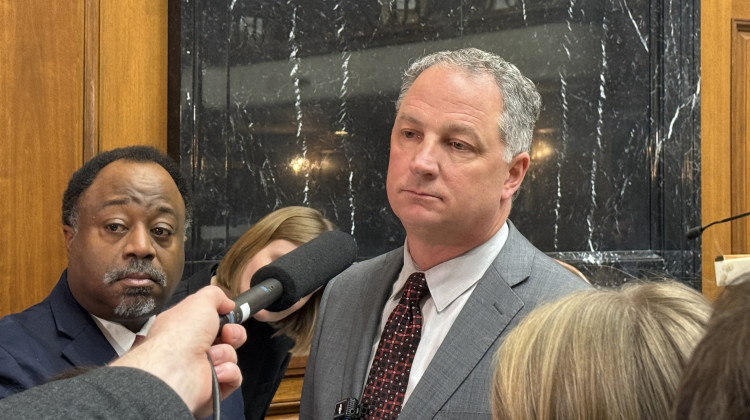Retaliatory Chinese tariffs have impacted trade of recycled material from Indiana and elsewhere. This problem could create an opportunity for Indiana – but at a cost.
Overseas trade in recyclables was a focus of the Indiana Recycling Coalition’s annual conference this week in Indianapolis. Trump Administration tariffs on steel and aluminum are hurting industries caught in the crossfire.
“It’s just that the practical reality is that China has retaliated and they included a 25-percent tariff on aluminum scrap,” says Adina Renee Adler, senior director of government relations and international affairs at the Institute of Scrap Recycling Industries.
Adler says there have already been dramatic decreases in exports of recycled paper and plastics. And she says the trade war President Donald Trump started in the steel and aluminum industries has impacted her stakeholders.
“And those economics do float down to the recycling industry,” Adler says. “These are materials that require scrap to make new metals.”
Some of China’s recent policies may become the new normal.
“They have banned certain materials that come from our residential streams. They imposed very strict quality standards on all of the different materials,” Adler says. “They have also tightened up import license and quotas.”
Indiana does not export much of its recyclable materials and has had to develop its own infrastructure to handle them.
Indiana Recycling Coalition Executive Director Allyson Mitchell says if state leaders choose to spend money on improving Indiana’s capacity to refine the waste it generates, manufacturers in the state could buy those recyclables, rather than having to spend more money importing them from elsewhere.
“The more we can make some infrastructure investments into those processing facilities, into the ability to sort and deal with contamination situation, the better we’ll be able to respond and actually turn this challenge into an economic opportunity for the entire state,” Mitchell says.
For most Hoosiers recycling ends once materials are placed in the bin and taken away, but Adler says it’s an international industry.
“It is hard to imagine that it is a global industry,” Alder says. “What comes out of a recycling process are real materials, real commodities, that could be made into other things.”
She assures that U.S. manufacturers are using these materials to make new consumer goods.
“What’s happening in China does impact even a recycler that doesn’t send material across borders, just because of the way supply and demand and prices and all that effect back at the local level,” Adler says.
 DONATE
DONATE








 Support WFYI. We can't do it without you.
Support WFYI. We can't do it without you.